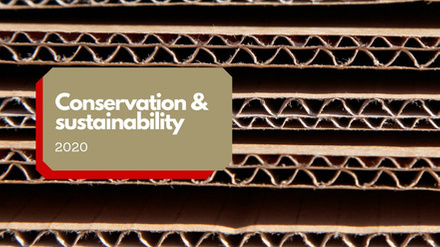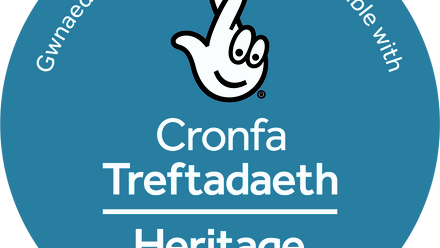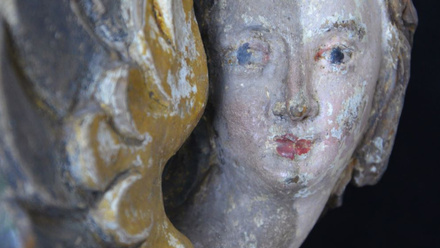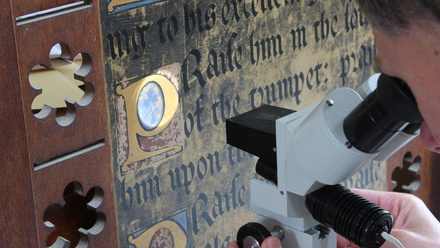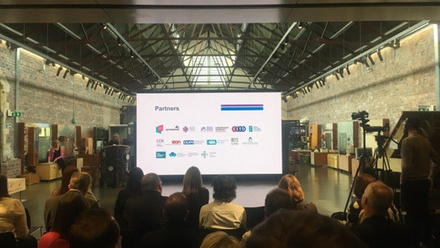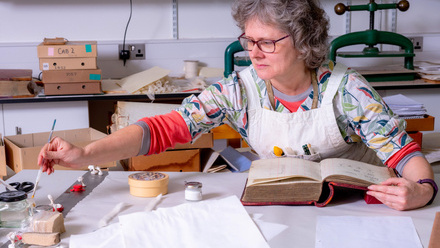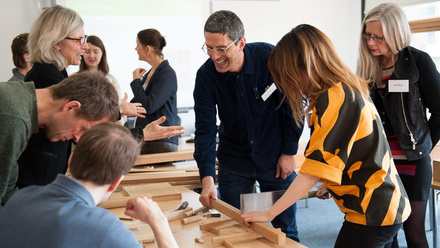Icon's Impact: Icon and COP26
What was the goal we set out to achieve?
November 2021 was an incredibly important for anyone who cares about the environment and climate change. Policy-makers and activists from across the globe arrived in Glasgow to work together to accelerate action towards the goals of the Paris Agreement and the UN Framework Convention on Climate Change.
The aim of the UK COP26 Presidency was to keep alive the hope of limiting the rise in global temperature to 1.5C. The result was the Glasgow Climate Pact, a global agreement which aims to accelerate action on climate.
While the focus of the Glasgow Climate Pact is understandably on headline issues such as coal power, deforestation and transport a small but determined group of organisations set themselves the mission of ensuring that the voice of cultural heritage was heard in the debates and side-events. Icon was a partner and a collaborator in this important work.
What did we do?
Sara Crofts, Icon’s Chief Executive, was one of the founding members of the Climate Heritage Network’s International Steering Committee and the co-ordinator of its advocacy working group.
Wearing this hat, she was able to ensure that a key CHN deliverable was produced in time for COP26. The out was the Communicating Climate Heritage Toolkit, a comprehensive resource designed to support cultural heritage practitioners to act as #ClimateHeritage advocates.
Sara was also invited to take part in a number of events during the COP26 fortnight, including the Climate Heritage Resilience Summit and a conference on Archives supporting environmental sustainability arranged by The National Archives.
We also took the opportunity to produce a specially themed COP26 edition of our bi-monthly membership magazine Icon News, which featured an update on the work of Icon’s Sustainability Network (IconSN) as well as a series of articles setting out the many ways that Icon members are engaging with climate change and embedded sustainable practices in their studios and workplaces.
The special issue also featured a contribution from Fit for the Future, an environmental network that brings together over one hundred charities, heritage organisations, local authorities and cultural venues with the aim of facilitating collaboration and knowledge-sharing. Icon is a committed member of Fit for the Future because we believe that rapid and far-reaching changes are needed to decarbonise, adapt to climate change, build business resilience and drive positive environmental impacts and we want to work with other organisations to play our part. We were pleased to jointly host a workshop called Looking after your “stuff” sustainably which considered the benefits of passive environmental controls and featured a case study from trustee Lorraine Finch ACR focussing on the principle that prevention is better than cure.
What was the outcome?
Working with others to share good practice increases the level of understanding of sustainability challenges and responses within the conservation sector, and helps to facilitate change within organisations. Collaborating with external partners allow synergies to be identified and new projects to be developed with a view to solving shared problems. Icon plays an important role as a facilitator and convenor, bringing people together and encouraging joint working. We are also able to offer a platform for disseminating knowledge through webinars and training events.
As part of our preparation for COP26 we also took the opportunity to review and update our briefing note on Conservation and Sustainability. Icon believes that conservation supports communities in their response to climate change in three key ways:
- through direct rescue of threatened sites
- by supporting decision-making through building an improved understanding of
- materials, risk and impact
- through developing and promoting mitigation actions
The newly revised briefing note sets out in greater detail the contribution that conservation and heritage science make towards addressing the challenge of climate change, using examples from around the world. We have shared the link to Conservation and Sustainability with our policy colleagues across the sector so that they can make use of its advocacy messages in addition to using it to strengthen our own policy work.
What will we do next?
We will continue to progress the actions in our Environment Statement and have also made a renewed commitment to environmental responsibility in our new Strategy with the ambition to reduce our organisational footprint and offer leadership and guidance to the profession.

